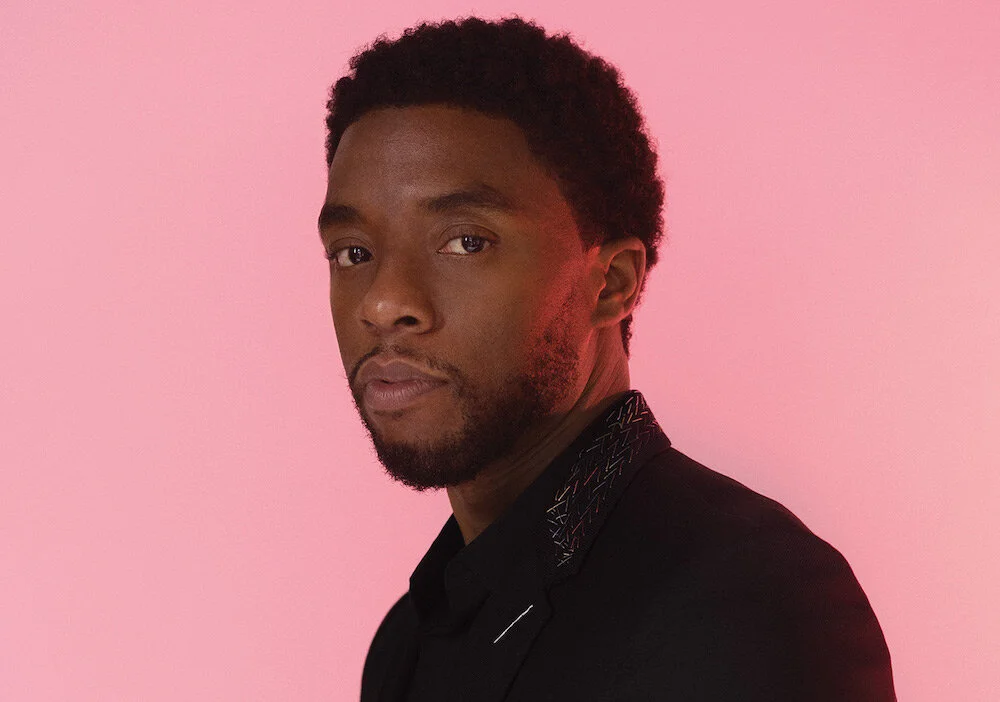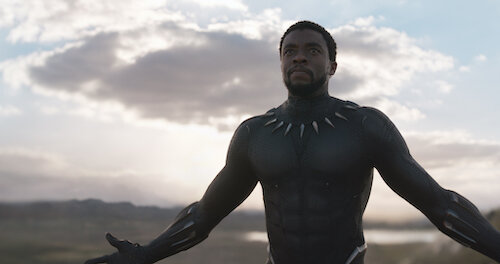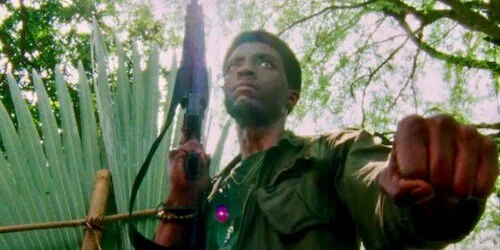Remembering Chadwick Boseman
The world is still in shock after actor Chadwick Boseman passed away at the age of 42 (or 43, depending on different sources) from colon cancer. Of course, any death of a beloved artist, idol or creator feels devastating, but I think Boseman’s passing is one of those that stings even more for a few reasons. In honour of his memory and his brief-yet-striking filmography, I’ve attempted to pool together my thoughts after a few days of marinating on this very sudden tragedy. For me, it felt like the world still had so much to see from Boseman, and we barely even had a chance to fully realize what we had so far with him. I’ve been a bit on the fence with Marvel films for ages, and I’m not going to use this opportunity to list my problems with the franchise. However, I will say I’ve always respected the podium it has given gifted performers. Usually you’d find awards season darlings being picked up and shown in a new light (Jeremy Renner, Brie Larson, Elizabeth Olsen, and lately Florence Pugh) or well established stars keeping their legacies alive in a new way (Scarlett Johansson, Robert Downey Jr. [who had a career rejuvenation as Iron Man], Mark Ruffalo).
With Boseman, it felt a bit different. He fell into neither category. He was discovered late into his acting career, having been in mostly bit parts on television to start (aside from a recurring character in All My Children, and a nine episode run with the show Lincoln Heights) before finally getting a chance in The Kill Hole in 2012. 42 and Get on Up followed, where Boseman played African American legends Jackie Robinson and James Brown respectively; he also starred in the Ivan Reitman sports drama Draft Day. Boseman was an up and coming star, but neither film took off quite as well as they could have; yet, Marvel noticed him anyway. Given his promotion of black history and polished acting style, he seemed like the perfect fit to play King T'Challa.
Black Panther.
So, Marvel made a test run of Boseman as T'Challa in Captain America: Civil War: a semi Avengers film in every way. One of the biggest takeaways audiences had with this film was that they knew they loved T'Challa as Black Panther, and they needed his solo film now. For years, the hype for a Black Panther standalone feature was at large, and Marvel was luckily quickly responding to this uproar. I’d like to continue onward with the remainder of Boseman’s filmography, but it’s important to note that the year at this point is 2016. As we sadly now know, this was when Boseman was first diagnosed with colon cancer: a battle he held silently. This was just the start of his takeover on Hollywood. This was only the beginning. Now, let’s see what Boseman accomplished while fighting one of the most fatal cancer battles one can have.
While Marvel was preparing for T'Challa’s global domination, Boseman kept up his own mission to use cinema as an educational tool for black history with Marshall; he co-produced this film about civil rights activist Thurgood Marshall to help it come to fruition. One year later, Black Panther came out. With Ryan Coogler’s direction, Boseman was able to continue his spread of cultural and historical appreciation; Coogler and company utilized many African symbols, designs, and monuments into Wakanda and all of its inhabitants. “Wakanda forever!” became the slogan for African appreciation for the entire year. Black representation in mainstream and comic book films was one step in the right direction. This was a communal effort of all cast and crew, but Boseman was the perfect T'Challa, which helped. His acting was something fairly different in the Marvel canon; it felt almost more Shakespearean than superhero. With both Boseman’s approach and Coogler’s direction, King T'Challa transcended most Marvel heroes in any capacity, and it hoisted a well made film even higher; with the important messages at hand, this was all in favour of the cultural shift Black Panther was capable of.
Da 5 Bloods.
Need I remind you that Chadwick Boseman was battling colon cancer during all of this, and with what came afterwards. Film wise, Boseman reprised his character as Black Panther in both Avengers films (Infinity War and Endgame), as well as starring in detective thriller 21 Bridges. His final work was in Spike Lee’s fantastic Da 5 Bloods, which came out earlier this year; he also starred in Ma Rainey's Black Bottom, which will be released posthumously. Outside of film, Boseman was a popular face everywhere, including being a judge during the NBA All Star weekend earlier this year (as well as an athlete during the celebrity All Star Game previously). His connection with athletes — including Victor Oladipo’s tribute dunk to Black Panther, with Boseman’s in-person permission — made him popular within the league. In a time where the NBA was bookended with different racial injustices that they fought against (first with Eric Garner’s murder in 2014, then George Floyd’s murder in 2020), Black Panther and “Wakanda forever!” felt like a positive message to combat all of the systemic and racial hate in America (and the world); Civil War came out the same year Colin Kaepernick started to kneel during the national anthem sang at National Football League games, and Boseman’s Black Panther reign only grew larger after these protests began (coincidentally, but still fitting). Not only that, but Black Panther was a sign of hope for the ill; Boseman — like other Marvel and franchise stars — visited sick children as King T’Challa’s Black Panther, or as himself, to bring smiles to the faces of youths that didn’t know what was going to come next. He granted strength to others, while silently slowly dying.
He was targeted with online toxicity in the early months of 2020, when he was visibly thin in photographs and public events. He turned off his comments on Instagram, and deleted certain photographs in response. I bet these people feel absolutely foolish now. Not once did Boseman bring up his illness, as he focused on bringing strength to others, light to black history and culture, and continue his Marvel triumphs. As an actor picked up late in his career, only to have his biggest years plagued by cancer, Chadwick Boseman kept going and didn’t miss a single beat. He lived every second of these opportunities, and enjoyed himself as much as he tried to entertain and enlighten others. The premature death of someone that had so much to give still, and never wasted a single second to deliver, just seems incredibly unfair. The amount that Boseman did in such little time is unbelievable. He was unbelievably talented, and I don’t think we even came close to seeing what his opus could have been. He was beyond generous, and I know we only got the tip of the iceberg of what he was going to give. He was always aware, and we need his voice now more than ever. I can’t speak for Chadwick Boseman, who made the most out of a terrible situation, but I can safely say for myself that I wasn’t ready for him to go. Not even remotely. I feel like many would agree with that.
Chadwick Boseman passed away August 28th. This was Jackie Robinson Day in 2020, on Jack Kirby’s birthday (co-creator of the original comic book Black Panther), and one day after James Brown’s final studio release The Next Step. This seems like fate, but I don’t care. All of these coincidences don’t make Chadwick Boseman’s death hurt any less. He was still taken far too soon.
Rest in peace, Chadwick Boseman. Wakanda forever.
Andreas Babiolakis has a Masters degree in Film and Photography Preservation and Collections Management from Ryerson University, as well as a Bachelors degree in Cinema Studies from York University. His favourite times of year are the Criterion Collection flash sales and the annual Toronto International Film Festival.





